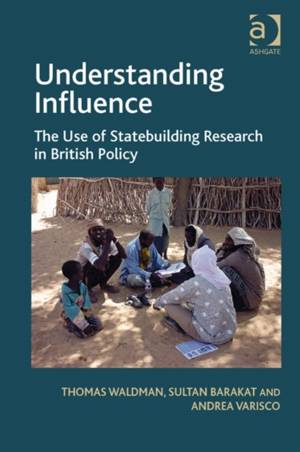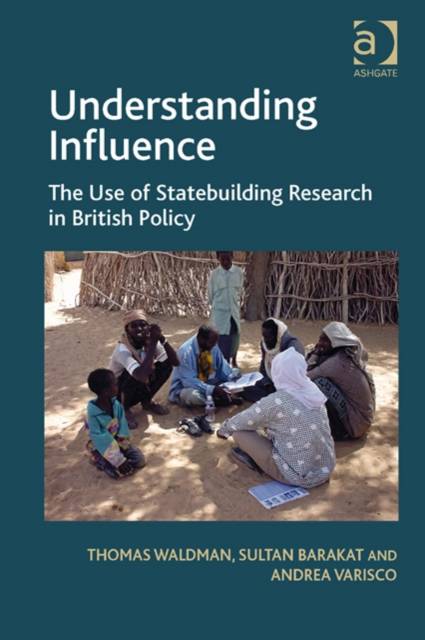
Door een staking bij bpost kan je online bestelling op dit moment iets langer onderweg zijn dan voorzien. Dringend iets nodig? Onze winkels ontvangen jou met open armen!
- Afhalen na 1 uur in een winkel met voorraad
- Gratis thuislevering in België vanaf € 30
- Ruim aanbod met 7 miljoen producten
Door een staking bij bpost kan je online bestelling op dit moment iets langer onderweg zijn dan voorzien. Dringend iets nodig? Onze winkels ontvangen jou met open armen!
- Afhalen na 1 uur in een winkel met voorraad
- Gratis thuislevering in België vanaf € 30
- Ruim aanbod met 7 miljoen producten
Zoeken
Understanding Influence
The Use of Statebuilding Research in British Policy
Thomas Waldman, Sultan Barakat
Hardcover | Engels
€ 124,45
+ 248 punten
Omschrijving
The overarching objective of this book is to analyse the manner in which statebuilding-oriented research has and can influence policies in fragile, post-conflict environments. Large-scale, externally-assisted statebuilding is a relatively new and distinct foreign policy domain having risen to the forefront of the international agenda as the negative consequences of state weakness have been repeatedly revealed in the form of entrenched poverty, regional instability and serious threats to international security. Despite the increasing volume of research on statebuilding, the use and uptake of findings by those involved in policymaking remains largely under-examined. As such, the main themes running through the book relate to issues of research influence, use and uptake into policy. It grapples with problems associated with decision-making dynamics, knowledge management and the policy process and draws on concepts and analytical models developed within the public policy and research utilisation literature. This book will be of great interest to researchers, knowledge managers and policymakers working in the fields of post-war reconstruction, statebuilding, fragile states, stabilisation, conflict and development.
Specificaties
Betrokkenen
- Auteur(s):
- Uitgeverij:
Inhoud
- Aantal bladzijden:
- 280
- Taal:
- Engels
Eigenschappen
- Productcode (EAN):
- 9781472427571
- Verschijningsdatum:
- 25/09/2014
- Uitvoering:
- Hardcover
- Formaat:
- Genaaid
- Afmetingen:
- 156 mm x 233 mm
- Gewicht:
- 634 g

Alleen bij Standaard Boekhandel
+ 248 punten op je klantenkaart van Standaard Boekhandel
Beoordelingen
We publiceren alleen reviews die voldoen aan de voorwaarden voor reviews. Bekijk onze voorwaarden voor reviews.











